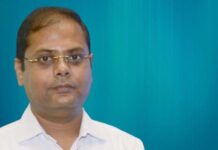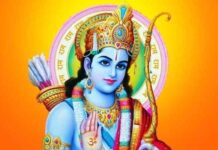Professor M.S. Rao, Ph.D. is the Father of ‘Soft Leadership’ and Founder of MSR Leadership Consultants, India. He is an International Leadership Guru and an internationally acclaimed leadership educator, executive coach, speaker, and consultant. He is a sought-after keynote speaker globally. He has 36 years of experience and has authored 36 books including the award-winning 21 Success Sutras for CEOs. His book – 21 Success Sutras for Leaders was ranked as one of the Top 10 Leadership Books of the Year – 2013 by San Diego University, USA. His award-winning book – Success Tools for CEO Coaches: Be a Learner, Leader, and Ladder is the Community Award Winner for 2014 by Small Business Trends, USA. His vision is to build one million students as global leaders by 2030.
“Soft leadership can be defined as the process of setting goals; influencing people through persuasion; building strong teams; negotiating them with a win-win attitude; respecting their failures; handholding them; motivating them constantly; aligning their energies and efforts; recognizing and appreciating their contribution in accomplishing organizational goals and objectives with an emphasis on soft skills. It is based on the right mindset, skillset, and toolset.” – Professor M.S.Rao
Q- You have introduced a new perspective of “Soft Leadership” which is well recognized and appreciated. For the benefit of readers – please share your views on it.
I have coined soft leadership as the current leadership styles are outdated. Soft leadership is to get the tasks executed effectively with people-orientation without compromising task-orientation. It is about the partnership as the millennials appreciate working with partners rather than with leaders. Soft leadership is leading through soft skills and people skills. It blends soft skills, hard skills, and leadership. It emphasizes the significance of precious Human Resources. It helps in managing the emotions, egos, and feelings of the people successfully. It focuses on the personality, attitude, and behavior of the people, and calls for making others feel more important. It is an integrative, participative, relationship, and behavioral leadership model adopting tools such as persuasion, negotiation, recognition, appreciation, motivation, and collaboration to accomplish the tasks effectively.
Succinctly, soft leadership can be defined as the process of setting goals; influencing people through persuasion; building strong teams; negotiating them with a win-win attitude; respecting their failures; handholding them; motivating them constantly; aligning their energies and efforts; recognizing and appreciating their contribution in accomplishing organizational goals and objectives with an emphasis on soft skills. It is based on the right mindset, skillset, and toolset. There are 11 Cs that constitute soft leadership.

They are character, charisma, conscience, conviction, courage, communication, compassion, commitment, consistency, consideration and contribution. It is highly challenging for people to cultivate these 11 characteristics. However, if people possess more than 6 traits they get into the fold of soft leadership.
I requested Dave Ulrich to write a foreword for my book on soft leadership. He was kind to write the foreword. He has interpreted 11Cs by mapping onto leadership code.
Q- How does it improve organizational excellence and effectiveness? And how do you integrate with whole system transformation?
Globalization has changed the face of the world with unprecedented volatility, uncertainty, complexity, and ambiguity. The internet revolution transformed the world converting it into a global village. However, the countries and companies have not yet transformed with the changing times and technologies. There is an urgent need to adopt Whole System Transformation (WST) pioneered by Roland Sullivan (He wrote a foreword for one of my leadership books) which helped around 1000 companies transform successfully to improve their organizational bottom lines. The baby boomers are retiring globally and there is a shortage of leadership talent ready in the pipeline to ensure the sustainability of organizations. Therefore, there is an urgent need for adopting a new leadership to achieve multiple objectives of encountering economic decline, keeping the talent ready in the leadership pipeline, and maintaining the pace of organizations with the rapid changes taking place outside the organizations. It is essential to adopt soft leadership, which is a people-oriented leadership, and integrate it effectively with WST to achieve organizational excellence and effectiveness.
Q- Which traits make millennials more effective?
Millennials are ambitious, smart and tech-savvy. They are focused on their careers who believe more in smart work than hard work. They are impatient to achieve their goals. They must learn to achieve success with integrity. They must understand the fact that there is no shortcut to success.
Q- How do you inspire and influence millennials by the soft leadership model?
I have coined soft leadership keeping the rising expectations and aspirations of all stakeholders especially millennials who are not comfortable with old leadership models.
Q- You have received 10th International Prestigious Sardar Patel Award-2015 for Lifetime Achievement in “Excellence in Youth Development.” How do you see the change in your life after that?
I work for satisfaction, not for recognition. There is no change in life after receiving this award. On the other hand, there is a much bigger responsibility now to shape youth and students as leaders. I keep doing my job sincerely and consistently to share my knowledge with the world free and shape students as global leaders.
Q- Tell us something about your latest book “Vision 2030: One Million Global Leaders?
It is one of the best books I have authored in India. Dr. Kiran Bedi wrote the foreword for this book and I have dedicated this book to Dr. APJ Abdul Kalam who I admire very much. He inspired millions of youth, especially students. Since I am also passionate about students and shaping them as leaders, I wrote my vision about India, and how to shape students as global leaders in this book. It contains leadership lessons from various leaders including Mahatma Gandhi, Swami Vivekananda, Sardar Vallabhbhai Patel, Dalai Lama, and Abdul Kalam. Some of the aspects of this book are anecdotal with my journey from soldier to author.
Q- What inspired you to become a motivational and leadership guru from a soldier with Indian Air Force?
I am passionate about India and serving my motherland since childhood. I developed more interest in leadership after I joined the Indian Air Force. After I left IAF, I explored various areas. Finally, I decided to serve students by becoming an educator. I earned my Ph.D. in Soft Skills in 2011 and became a professor. I started sharing my knowledge with the world free of charge on my four blogs. And students started sharing my knowledge with others thus giving me global visibility. I authored 36 books and published more than 250 research papers and articles.
Thank you, Professor Rao!









